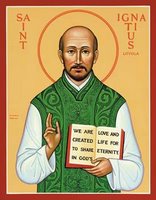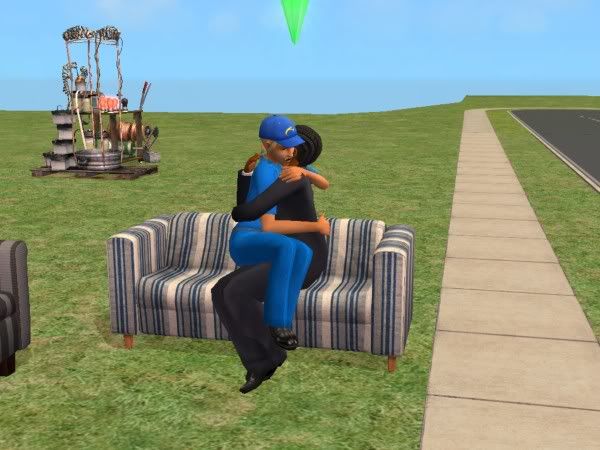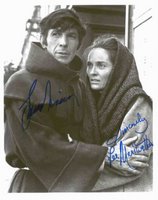 THE PRAYER EXAMINATION
THE PRAYER EXAMINATION
The Examen was developed by
St. Ignatius Loyola who was a practical kind of person which is reflected in this daily method of
prayer he recommended to his brothers. They prayed it numerous times per day as part of their daily rhythm of life.
It is is a prayer where we try to find the movement of the Spirit in our daily lives as we review our day. There are five simple steps to the Examen, which should take about 15 minutes to complete. Many people make the Examen once around lunchtime and again before going to bed. This prayer can be made anywhere—on the beach, in a car, at home, in the library.
The following is just one interpretation (of many) of these five steps to discerning the movement of Gods Spirit in your day.
Before you start: Try to be in a place where you are least likely to be disturbed, and where there is the least amount of
external noise. Perhaps you
light a candle or change the lighting when you pray to symbolise the start of this activity. Then sit comfortably and still yourself. Relax, be aware of your breathing, your body and how you are feeling.
1. RECALL THAT YOU ARE IN THE PRESENCE OF GOD
We are always in God's presence, but in prayer we place ourselves in God’s presence in an especially attentive way. God knows intimately. He loves you in the deepest way possible and desires for an intimate connection with you. In John 15 Jesus says ‘abide in me and I will abide in you’ – his invitation is to make our HOME in him. As you still yourself be aware that God is
present with you, in creation of your surrounds, your body, in those around you. Remind yourself of his presence with you and desire to BE with you. Be still and know that you are with God.
2. LOOK AT YOUR DAY WITH GRATITUDE
After a few moments, begin to give thanks to God for the gifts of today. Special pleasures will spring to mind: a good night’s sleep, the smell of the morning coffee, the laugh of a child, a good meal or lesson learnt. As you move in gratitude through the details of your day give thanks to God for his presence in the big and the small things of your life.
3. ASK HELP FROM THE HOLY SPIRIT
Before the next step of reviewing your day, ask that God’s Spirit might help you to look at your actions and attitudes. Ask the Holy Spirit to help you to understand the motivation of your heart, to see the gifts of God and how you’ve responded to them. Ask that you’d learn and be shaped as your reflect. Remember, this is not a time to dwell on your shortcomings rather, it is a gentle look with the Lord at how you have responded to God’s gifts. It is an opportunity for growth of self and relationship with God.
4. REVIEW YOUR DAY
This is the longest of the steps. Here you review your entire day, watching it like a movie that replays in your mind. Be sure to notice the details, the context of what happened and how you acted. As you look through the day, notice especially your motives and feelings. This is not psychoanalysis, rather it is a time for you to discern your daily motives, actions and reactions. Don’t try to fix everything in this stage, just examine how conscious you have been of God’s presence and actions in your life.
As you review you may wish to ask yourself some of the following questions.
1. Did I give time to God each day in prayer?
2. Did I have false gods in my life that I gave greater attention to than God, like money, profession, drugs, TV, fame, pleasure, property, etc.?
----------------------------------
3. Did I curse, or break an oath or vow?
4. Did I get angry with God?
----------------------------------
5. Did I miss worship through my own fault?
6. Did I take time out this week for sabbath rest?
7. Did I set aside a day of rest and a family day?
8. Did I show reverence in the presence of Jesus?
9. Did I receive communion if it was offered?
----------------------------------
10. Did I disobey or disrespect my parents or legitimate superiors?
11. Did I neglect my duties to my husband, wife, children or parents?
12. Did I neglect to give good religious example to my family?
13. Did I fail to actively take an interest in the religious education and formation of my children?
14. Did I cause tension and fights in my family?
15. Did I care for my aged and infirm relatives?
16. Did I give a full day's work for a full day's pay?
17. Did I give a fair wage to my employees?
----------------------------------
18. Did I kill or physically injure anyone?
19. Did I get angry, impatient, envious, unkind, proud, revengeful, jealous, hateful toward another, lazy?
20. Did I give bad example by drug abuse, drinking alcohol to excess, fighting, quarreling?
21. Did I abuse my children?
----------------------------------
22. Did I willfully entertain impure thoughts or desires?
23. Did I use impure or suggestive words? Tell impure stories? Listen to them?
24. Did I deliberately look at impure TV, videos, plays, pictures or movies? Or deliberately read impure materials?
25. Did I commit impure acts by myself (masturbation)?
26. Did I commit impure acts with another - fornication (premarital sex), adultery (sex with a married person)?
27. Did I avoid the occasions of impurity?
28. Did I try to control my thoughts?
29. Did I respect all members of the opposite sex, or have I thought of other people as objects?
30. Did I abuse my marriage rights?
----------------------------------
31. Did I steal, cheat, help or encourage others to steal or keep stolen goods?
32. Did I fulfill my contracts; give or accept bribes; pay my bills; rashly gamble or speculate; deprive my family of the necessities of life?
33. Did I waste time at work, school or at home? (yes blogging counts)
34. Did I envy other people's families or possessions?
35. Did I make material possessions the purpose of my life?
36. Did I seek justice and peace in my community or within the global community?
----------------------------------
37. Did I lie?
38. Did I deliberately deceive others, or injure others by lies?
39. Did I commit perjury?
40. Did I gossip or reveal others' faults or sins?
41. Did I fail to keep secret what should be confidential?
42. Did I bring disunity in any way to the church where I should have worked for harmony?
5. RECONCILE AND RESOLVE
The final step is our time to lay things on the table with God. Here you talk with God about your day. You share your thoughts on your actions, attitudes, feelings and interactions. Perhaps in this time you may feel led to seek forgiveness, ask for direction, share a concern, express gratitude etc. There may be an area you’ve felt challenged on or some action you feel you need to take out of this time. Resolve with God to move forward in action where appropriate. You might like to finish your time with the
Lords Prayer.
added this morning:joel got me thinking and so i invite anyone reading this to consider:thanks joel,these questions are from the traditional examen before confession in the catholic tradition. you raise a good point.
are there questions that ought to be eliminated and are there questions that ought to be asked that aren't in here?





 Happy Thanksgiving all!!!
Happy Thanksgiving all!!!
































